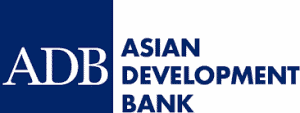There was this popular aphorism a few years ago that if you spit out of the window of your building along the capital’s main street, it might certainly land on top of a graduate’s head. It was basically used over casual conversation, albeit in a mocking way, to depict how grueling it had become to find a job and the changing scenario when college graduates could no longer afford to wait at their homes for jobs to come to them.
And a similar sort of aphorism has gradually taken shape today – that if you spit out of the window of your building in a similar way, it might certainly land on top of a tour guide’s head. This is increasingly becoming a reality as we look at the number of tour guides today and the numbers that are being churned out by the private training institutes each year. Some describe the process as similar to that of potato chips factories producing potato chips.
There are already over 3,600 tour guides today. Further, each private training institute is roughly producing 120 new guides each year; meaning almost around 920 to 1,000 new tour guides are being trained by the eight active training institutes and join the already inundated market each year. And this huge mismatch of supply exceeding demand has led some tour guides to stay idle for years despite having been certified, while some are willing to go as low as or what they are offered. A negative outcome, meanwhile, of such a situation is the rate a tour guide is willing to work at becoming the overriding factor than one’s knowledge, output and capability to get a group or a job. It’s increasingly no longer becoming a business about offering the best of hospitality and services.
And we pompously call our tour guides as the ambassadors of the country, considering that they are the first touch point for visitors to Bhutan. We reason that they are important to ensure a high quality and unforgettable experience for visitors. If that is the case so, shouldn’t they have the highest professional qualities, knowledge, education and ethics in order to provide the highest standard of services? Shouldn’t then becoming a tour guide be arduous than getting other jobs? The contrary is, however, true.
Thanks to the ‘High Impact, Low Volume’ tourism policy that tourism is a success story in Bhutan and that the country has established itself as a top tourist destination among tourists and travelers worldwide. It must continue to truly live up to the names it has earned for itself. A befitting initiative perhaps can be on focusing on the quality of tourists coming to Bhutan than their numbers, and focusing on quality of tour guides than their numbers.












